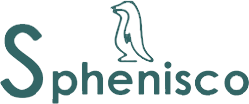Landau 30 September 2021.
The decision of the Commission for Environmental Impact Assessment (COEVA) of the Coquimbo region has triggered widespread protests in Chile. Of particular interest is the Open Letter from Chilean scientists published in the online edition of Science (https://www.science.org).
On 11 August, the Chilean government approved the construction and operation of Dominga (1), a high-grade iron and copper open-pit mine and port at the heart of the Humboldt Archipelago ecosystem (seven islands near northern Chile and the adjacent Chilean coast). The scientific community, National Forest Service, and Ministry of the Environment had previously rejected this project, which will cause huge and irreversible impacts on both land and sea to an ecosystem globally recognized as a biodiversity “hope spot” (2). The Humboldt Archipelago ecosystem harbors a rich and unique biota, and 60% of the total area of the reserve is classified as very fragile (3). An estimated 60 to 88% of the ecosystem’s species are endemic (3), and many are included in the International Union for Conservation of Nature Red List. Given the high environmental costs of Dominga, the project should be halted.
Dominga will disrupt the Humboldt Archipelago ecosystem and coastal land. Persistent upwelling will transfer large volumes of desalination concentrate from the submarine pipeline, affecting pelagic and benthic food webs that support seabirds and marine mammals of global importance. About 25 seabird species forage around the islands, which provide nesting sites for at least 14 species, 9 of which are endemic (4). Marine mammals such as the endangered marine otter (4), resident bottlenose dolphin (5), and 11 cetacean species feed, breed, or both, in the Humboldt Archipelago ecosystem (4). Port infrastructure, risk of oil spills, noise and light contamination, and increased vessel traffic will directly threaten seabirds and cetaceans (6). Mining will also compromise habitats of endangered cacti (7) and populations of birds (8), reptiles (9), scorpions (10), and insects (11).
Extractivist policies in Chile have a long history despite a track record of disastrous consequences for the environment, communities, and human rights (12). In line with the Intergovernmental Panel on Climate Change’s sixth assessment report to mitigate climate change, Chile should implement cleaner environmental and socioeconomic policies, preserving both richness and species composition of the Humboldt Archipelago ecosystem. Chile is currently at a crossroads as elected constituents draft a new constitution: Either we continue on the path of traditional extractivism mortgaging our biodiversity or we adapt to a greener future, promoting a sustainable economy that balances progress with current social imperatives for environmental justice.
Mauricio A. Urbina 1,2, Pablo C. Guerrero 3, Viviane Jerez 1, Fulgencio Lisón 1, Guillermo Luna-Jorquera 4, Camilo Matus-Olivares 5, Juan C. Ortiz 1, Guido Pavez 6,7,8, María J. Pérez-Alvarez 7,9,10, Ramiro Riquelme-Bugueño 1,2, Macarena Santos-Carvallo 6,7, Maritza Sepúlveda 6,8, Pedro F. Victoriano 1, Daniel Gomez-Uchida 1,8*
(1) Departamento de Zoología, Facultad de Ciencias Naturales y Oceanográficas, Universidad de Concepción, Concepción, Chile. (2) Instituto Milenio de Oceanografía, Universidad de Concepción, Concepción, Chile. (3) Departamento de Botánica, Facultad de Ciencias Naturales y Oceanográficas, Universidad de Concepción, Concepción, Chile. (4) Núcleo Milenio Ecología Manejo Sustentable Islas Oceánicas, Departamento de Biología Marina, Universidad Católica del Norte, Coquimbo, Chile. (5) Departamento de Ciencias Forestales y Medioambiente, Facultad de Ciencias Agropecuarias y Forestales, Universidad de La Frontera, Temuco, Chile. (6) Centro de Investigación y Gestión de Recursos Naturales, Facultad de Ciencias, Universidad de Valparaíso, Chile. (7) Centro de Investigación Eutropia, Santiago, Chile. (8) Núcleo Milenio Salmónidos Invasores, Concepción, Chile. (9) Escuela de Medicina Veterinaria, Facultad de Ciencias, Universidad Mayor, Santiago, Chile. (10) Instituto de Ecología y Biodiversidad, Santiago, Chile.
*Corresponding author.
References and Notes
- Mining[dot]com, “Chile’s $2.5 billion Dominga copperiron project approved by regulators” (2021); www.mining.com/web/chiles-2-5bn-dominga-copper-ironmine-project-approved-by-regulators/.
- BBC News, “Humboldt Archipelago: The ‘place of hope’ of the oceans in Chile” (2018).
- Corporación Nacional Forestal, “Plan de manejo Reserva Nacional Pinguino de Humboldt, Part A” (2018) [in Spanish].
- M. Sepúlveda et al., “Determinación del estado A recently approved mining project threatens the endemic species and fragile ecosystems of northern Chile, including those on Tilgo Island. poblacional en las Reservas Marinas isla Chañaral e islas Choros y Damas, de las especies delfín nariz de botella, chungungo, pingüino de Humboldt y cetáceos” (Informe Final Proyecto FIPA 2018-43, 2021) [in Spanish].
- M. J. Pérez-Alvarez et al., Anim. Behav. 139, 81 (2018).
- R. Quispe et al., Mar. Ornithol. 48, 205 (2020).
- P. C. Guerrero et al., Taxon 68, 557 (2019).
- J. F. Masello et al., Front. Zool. 8, 16 (2011).
- P. Valladares et al., Gayana 75, 81 (2011) [in Spanish].
- J. Pizarro-Araya, A. A. Ojanguren-Affilastro, Gayana 82, 8 (2018) [in Spanish].
- V. Jerez, J. Pizarro-Araya, Gayana 82, 101 (2020) [in Spanish].
- S. Smart, Crit. Plan. 23, 59 (2017).
W.K.



